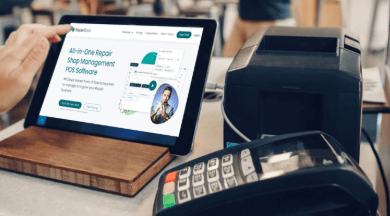Best Practices for Implementing Open Source Proposal Management Software

Implementing open source proposal management software can be a game changer for businesses looking to streamline their proposal processes. It offers flexibility, scalability, and cost-effectiveness, provided the software aligns with the company’s operational requirements and IT infrastructure. Understanding how to effectively implement and manage these tools is essential for maximizing their benefits. Below, we delve into best practices for adopting open source proposal management solutions that can optimize your business workflows. Keep reading to unlock the potential of these dynamic tools.
Evaluating Your Business Needs Before Selecting Open Source Proposal Management Software
When adopting open source proposal management software, start by evaluating your company’s needs. Consider the number, complexity, and frequency of proposals to identify the essential features, like collaboration tools and customization options. Involve key stakeholders in the decision-making process to ensure the software meets the needs of different departments.
It’s also crucial to assess your IT team’s ability to install and manage the software. If extra training or personnel are needed, factor in those costs. Check for strong community support and updates to help with troubleshooting and enhancing the software’s functionality.
Understanding the Security Implications of Open Source Tools
Open source software is often considered secure, but due diligence is crucial. It’s essential to scrutinize the software’s security track record, looking for past vulnerabilities and their swift resolution. Open source projects rely on community engagement, but businesses must stay updated with updates and patches. Regularly scheduling updates is a proactive measure to secure proposal management systems.
Internally, implement sound security policies, training staff to recognize best practices like strong passwords, phishing attempts, and data handling responsibly. Legal implications, particularly when dealing with sensitive customer information, may influence the choice of open source software. Compliance with industry regulations like GDPR or HIPAA may also influence the choice or require additional configuration.
Best Practices for Effective Implementation of Proposal Management Systems
To successfully implement an open-source proposal management system, it’s crucial to have meticulous planning, a phased rollout schedule, and a pilot program. Start with a control group and provide feedback. Training is essential to ensure users understand the software and its integration with current processes.
Customization is beneficial, but not overuse, as it can lead to complications and difficulties in future software updates. Establish a clear communication line between users and the implementation team, actively seeking and incorporating feedback. This iterative process ensures continual improvement and user satisfaction, which is crucial for the successful adoption of the system.
Integrating Open Source Proposal Software with Existing Platforms

Integration is crucial for the smooth operation of new software within an existing technological ecosystem. It involves considering how the software will communicate with CRM, project management, and accounting tools, reducing manual entry and errors. Open source software often provides APIs or integration tools, which can be leveraged to create a cohesive system. IT personnel or integration specialists can help overcome technical hurdles and make informed decisions.
Maintaining data integrity is essential during integration, and precision planning and execution can ensure accurate translation without loss or corruption. Testing data integrity before going live can mitigate risks. Choosing open-source software with flexible integration capabilities can help future-proof your investment and allow for modifications or expansions without disrupting your entire system.
Ongoing Maintenance and Support for Open Source Proposal Management Software
Open source software requires regular maintenance and support to ensure its reliability and security. Regular updates and backups are essential, and new versions’ release notes provide valuable information about improvements and security fixes. Community support, such as forums and mailing lists, can provide insights beyond traditional vendor support.
Professional services may be necessary for complex issues beyond the team’s expertise, and these costs should be factored into the overall software maintenance budget. Regularly reviewing the software’s performance metrics, such as proposal creation and management against key performance indicators (KPIs), can help identify areas for improvement and ensure the software continues to meet business needs.
Overall, implementing open source proposal management software requires a strategic approach tailored to your organizational needs. Ensuring that security, integration, and ongoing support are addressed will lead to a robust system that enhances your proposal development processes. While open source solutions come with unique challenges, the potential for customization and cost savings make them an attractive option for businesses willing to invest in best practices for long-term success.





